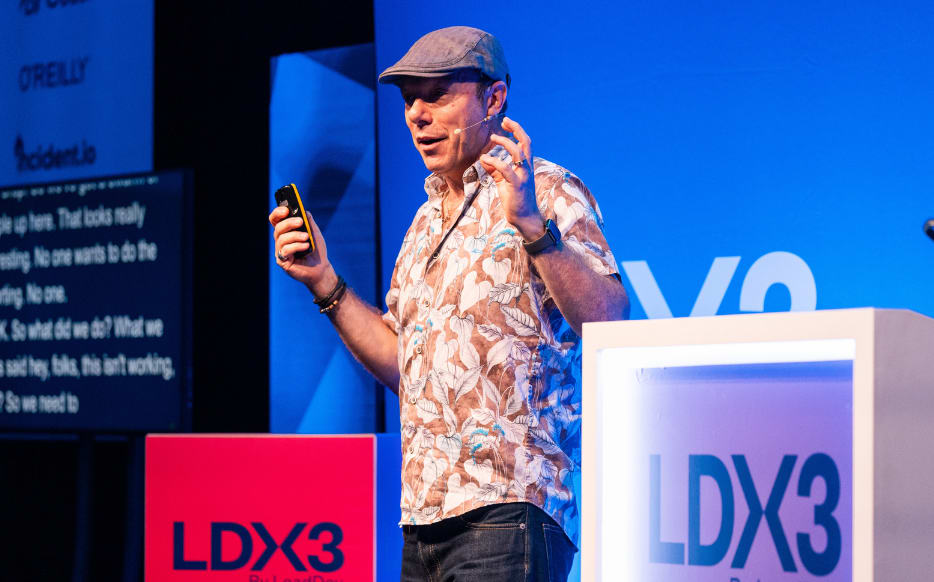
Latest
-
AI doesn’t create great developers, it amplifies them
Research from GitClear suggests the best devs benefit the most when using AI coding tools.
-
14 essential AI programming tools 2026
Here are some of the best generative AI programming tools for software developers to try today.
-
 In partnership with LaunchDarkly
In partnership with LaunchDarklyFrom code tsunami to controlled innovation: Launching software in the age of AI
How to harness the explosive speed of AI-driven development without losing control, compromising safety, or putting customer experience at risk.
Editor’s picks
Productivity isn’t always fast
It can often feel like we aren’t being productive unless we’re working at max speed. But slow productivity is here to subvert that idea.
How to speed up code reviews
Code reviews don’t have to be painful. Here’s how to embrace tools and more collaborative processes to raise the bar on your review cycle.
Maintain team performance during unexpected change
You’ll have to experience change management at least once in your career. Make sure your teams can maintain performance through it all.

London • June 2 & 3, 2026
LDX3 London agenda is live! 🎉
Essential reading

Should the daily stand-up die?
Will the real agile developers please stand up? Please stand up. Please, stand up.
On our Velocity playlist

Engineering owns velocity
In this talk, I’ll explore what engineering leaders need to do to credibly own velocity and deeply align their work with the company strategy.

Launching a Gen AI powered travel companion: A case for tiger teams
Explore Booking.com’s journey in launching a Gen AI travel companion in 3 months, powered by a tiger team approach for rapid, focused product development and innovation.

Goldilocks doesn’t need your story points or your t-shirts
Ben Murray believes there is only really one question you need to ask: is this task small enough?

How to drive pace in your team ??♀️
Alicia Collymore delivers actionable advice that’ll help you to improve your teams’ delivery and pace without a data-first approach.

Planning for success when scaling rapidly
Create goals, prioritize effectively, set expectations, and drive alignment.
More about Velocity
-
Don’t cross the Rubicon: engineering practices you don’t want to delay
Avoiding the point of no return
-
Optimizing micro-feedback loops in engineering
Streamlining micro feedback loops to improve product delivery and DevOps performance
-
Mapping the immovable objects in engineering projects
Accepting what you can’t change and changing what you can
-
Shaping inclusive cultures for remote engineering teams
Intentionally designing and making explicit your team’s norms, rituals, and spaces
-
Helping engineering teams adapt to a new normal
Initiatives to maintain trust and morale when transitioning to remote working
-
The huge opportunity of remote leadership
Harnessing your position to strengthen team cohesion and fairness
-
Four key metrics for measuring DevOps success
What do high-performing engineering teams look like, quantitatively?
Top Velocity videos
-
Collaborative debugging on engineering teams
Teams that write code together should be able to debug issues together. But while we think a lot about engineering collaboratively, we rarely develop processes for debugging collaboratively.
-
Growing teams to continuously deliver
The Continuous Delivery (CD) team at Spotify knows all about build pipelines. We run thousands of them every day. We were doing a lot of things right, but we still wanted to go faster and smarter
-
How to manage a globally distributed team
Companies more and more embrace working in a distributed environment. While it allows for attracting talent and working with great people around the world, it also means it comes with new challenges.
-
CI/CD For Humans: Empathy as the Foundation for Effective Deployments
Deploying website code might seem like dark magic to anyone not well versed in the specific tools and commands that go into orchestrating such complex systems, and crippling fear of breaking the website can be a real thing.
-
Using Agile Techniques to Build a More Inclusive Team
Building psychological safety in your teams is critical if you want them to perform at their best.
-

Effective remote communication in complex organisations
What are your challenges when communicating with your distributed teams and collaborating asynchronously? Tech leaders Katie Wilde, Dana Lawson, Asanka Jayasuriya, Farhan Thawar & Wambui Kinyashare share their communication strategies for remote orgs.
-

The nitty gritty of scaling software teams
Daniel Burke’s talk on evaluating and adopting appropriate software and design patterns, as well as tips on helping your people develop as your team grows.
-

Designing cultural transformations
Ryn Daniels shares a design process that helps you identify problems with your current culture and brainstorm sustainable solutions and opportunities.


